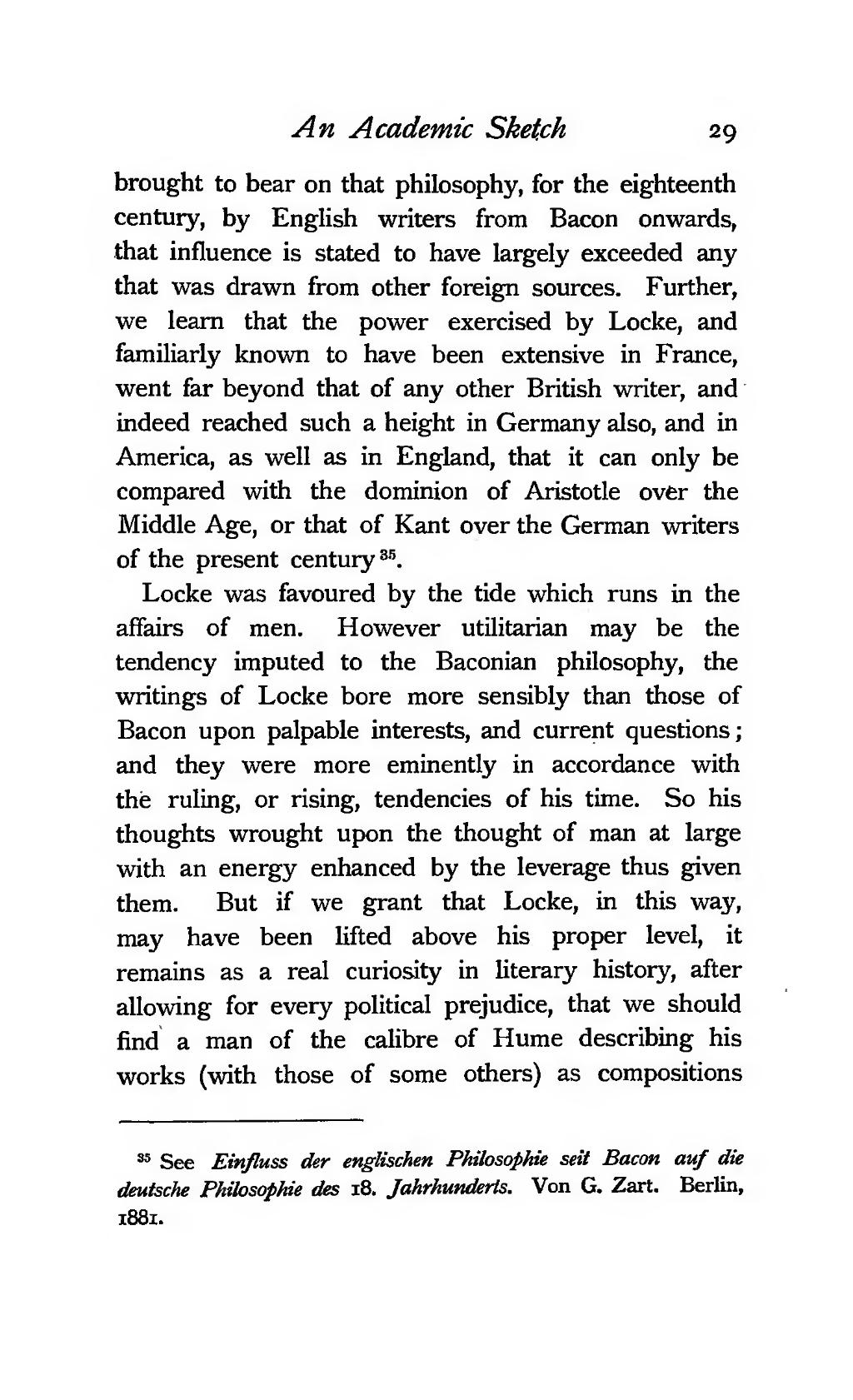brought to bear on that philosophy, for the eighteenth century, by English writers from Bacon onwards, that influence is stated to have largely exceeded any that was drawn from other foreign sources. Further, we learn that the power exercised by Locke, and familiarly known to have been extensive in France, went far beyond that of any other British writer, and indeed reached such a height in Germany also, and in America, as well as in England, that it can only be compared with the dominion of Aristotle over the Middle Age, or that of Kant over the German writers of the present century[1].
Locke was favoured by the tide which runs in the affairs of men. However utilitarian may be the tendency imputed to the Baconian philosophy, the writings of Locke bore more sensibly than those of Bacon upon palpable interests, and current questions; and they were more eminently in accordance with the ruling, or rising, tendencies of his time. So his thoughts wrought upon the thought of man at large with an energy enhanced by the leverage thus given them. But if we grant that Locke, in this way, may have been lifted above his proper level, it remains as a real curiosity in literary history, after allowing for every political prejudice, that we should find a man of the calibre of Hume describing his works (with those of some others) as compositions
- ↑ See Einfluss der englischen Philosophie seit Bacon auf die deutsche Philosophie des 18. Jahrhunderts. Von G. Zart. Berlin, 1881.

